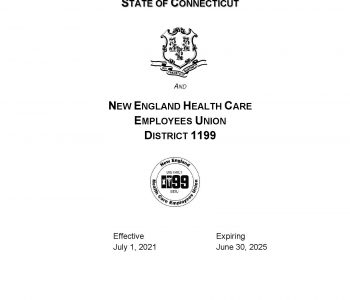Below are various articles relevant to the State, 1199 and the work we do!
Lamont Administration Begins To Take Shape
https://www.ctnewsjunkie.com/archives/entry/20190102_lamont_administration_begins_to_take_shape1/
Governor-elect Ned Lamont stayed busy during the holidays last week filling out a number of key administrative appointments as he heads toward his Jan. 9 inauguration.
Lamont names Bye to lead Office of Early Childhood
https://ctmirror.org/2019/01/02/lamont-names-bye-lead-office-early-childhood/
“Beth Bye has devoted her entire professional career to helping to build a more progressive and equitable early childhood system in which all children, regardless of their parent’s socioeconomic status, can grow, learn and develop,” said Lamont. “It’s clear that the formative early childhood years are key to providing children a solid educational base and platform, and I know Beth is the best person to take the helm of this critical agency.”
House Democratic leadership team features 11 new co-chairs
https://ctmirror.org/2019/01/03/house-democratic-leadership-team-features-11-new-co-chairs/
House Speaker Joe Aresimowicz and Majority Leader Matt Ritter unveiled new leadership assignments Thursday for the 2019 General Assembly session, including new co-chairs for 11 of the 27 committees.
Morning Record podcast: Aresimowicz talks about the upcoming session
House Speaker Joe Aresimowicz joins the Morning Record for the final installment of our 2019 Legislative Preview series.
Democrats To Push Progressive Agenda In Conn. House
http://www.wshu.org/post/democrats-push-progressive-agenda-conn-house#stream/0
Connecticut House Democrats picked up 12 seats in the 2018 elections, increasing their margin in the state House of Representatives over the Republican minority. Aresimowicz says that’s enabled him to assign a number of new faces to committee chairmanships. He says he’s hoping they’ll help push through a progressive agenda including the reintroduction of highway tolls.
CT’s workplace injuries above average
http://www.hartfordbusiness.com/article/20181228/NEWS01/181229945/1004
“Meanwhile, Connecticut also had above-average injury and illness rates among its state and local government employees last year… There were 8,900 cases reported, or 6.2 cases per 100 workers, compared with a national rate of 4.6. About three-quarters of Connecticut’s government cases occurred at the municipal level according to BLS.”
As Goes Maine, So Goes Connecticut?
https://www.newhavenindependent.org/index.php/archives/entry/rank_choice_voting/
Some 50 Democrats, independents, Greens and Working Family Party members showed up for a meeting about launching a statewide campaign to bring “ranked-choice voting” (RCV) to Connecticut.
Human services provides an opportunity for structural change
https://www.theday.com/article/20181230/OP04/181239983
The opportunity arises because many state human services workers will be reaching retirement age. The administration, working with the legislature, can either choose to replace them and perpetuate the programs or use the occasion to move to a system in which most services are provided by the private, nonprofit sector… That latter choice would be the better move.
Fasano optimistic bipartisanship can continue in Hartford
http://www.myrecordjournal.com/News/State/Fasano-previews-upcoming-legislative-session.html
One area where Fasano expects bipartisan collaboration is on health care, noting he and Senate President Pro Tempore Martin Looney, D-New Haven, have worked together on a number of bills since 2010.
State appeals FOI ruling that police report on CVH patient’s 2016 death should be public
To this day, despite a recent ruling by the state Freedom of Information Commission that the hospital-police incident report on the death is public and must be released, state mental-health officials have been resolute in their refusal to confirm information about what the FOI panel said was a matter of the public’s interest.
State must pay $845 million more to pension systems next year, report finds
A new report on Illinois underfunded pension systems says the state needs to put more money into the benefits programs before they become unsustainable and consume an even larger share of the state’s tax revenue.
As Kentucky pension battle rages on, here’s why Tennessee government workers are secure
Every year, since at least 1972, [Tennessee] has made its full pension payments recommended by actuaries… In other states, such as Kentucky and Illinois, politicians short-changed the annual pension payments. Facing recessions, they chose to fund schools and other services instead.
Five things about Pennsylvania’s major pension overhaul that reduces benefits, but not billions in debt
At the time the overhaul was passed, the state’s two big retirement systems — Public School Employees Retirement System (PSERS) and State Employees Retirement System (SERS) had a combined $72 billion in debt… The debt was caused by three main factors. From the mid-1990s until 2010, governors and lawmakers in both parties decided not pay the employers’ full annual share of workers’ retirement benefits and they permitted school boards to do the same thing.








